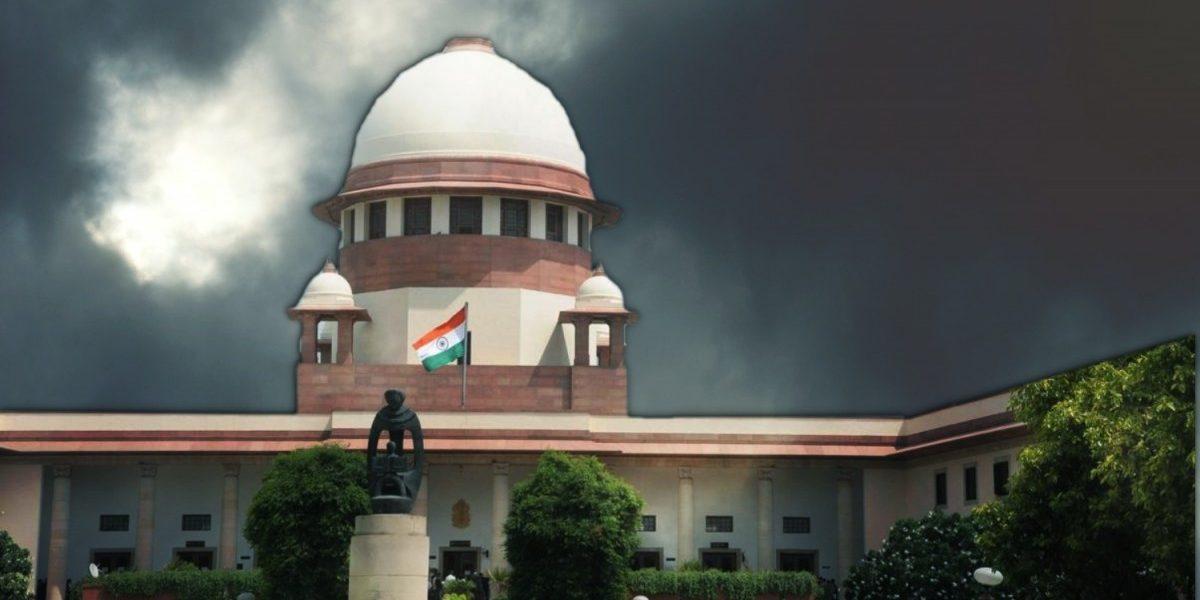The Nine Collegium Reiterations the Supreme Court Didn’t Want to Be Reminded Of
By allowing the Centre to sit on reiterated recommendations for the appointment of judges till the composition of the collegium changes, the Supreme Court has opened a window for the executive to influence the selection. On

By allowing the Centre to sit on reiterated recommendations for the appointment of judges till the composition of the collegium changes, the Supreme Court has opened a window for the executive to influence the selection.
On Friday, while hearing a petition filed by a non-governmental organisation alleging inordinate delay on the part of the Centre in clearing the names of judges recommended by the Supreme Court collegium, Chief Justice Ranjan Gogoi gave a clean chit to the Centre and disclosed that while there are 27 pending recommendations with the government, there are as many as 70 to 80 before the collegium.
In its petition, the Centre for Public Interest Litigation (CPIL), through counsel Prashant Bhushan, noted that there are as many as nine reiterations of the collegium which the Centre has been sitting on even though these are binding on it. Unmoved, the CJI went on to adjourn the hearing of the case for six weeks.
As on February 1, there are currently 400 vacancies for judges among the 25 high courts, with an approved strength of 1079 posts (771 permanent and 308 additional judges). The vacancies pertain to posts of 244 permanent judges and 156 additional judges.
Once the Supreme Court collegium makes a recommendation of names of judges, which were already vetted by the high court collegium and the Centre, the Union law ministry gets one more opportunity to examine it, and return it for reconsideration by the Supreme Court collegium. If the collegium unanimously reiterates a recommendation, it is binding on the Centre. Therefore, the delay in acting upon a reiterated recommendation is untenable, and illegal.
The nine reiterations
Details of nine reiterations by the collegium show that in each case, there has been inordinate delay on the part of the Centre in notifying a recommendation.
Here are the details:
1. Basharat Ali Khan
High Court: Allahabad High Court
Date of Recommendation: April 4, 2016
Date of Reiteration: Reiterated second time on August 1, 2018
Reason: Centre citing some complaints against the recommendee.
High Court: Allahabad High Court
Date of Recommendation: 16.11.2016
Date of Reiteration: Reiterated second time on August 1, 2018
Reason: Centre citing some complaints against the recommendee.
3. Krishna Bhat
High Court: Karnataka High Court
Current Position: Principal District and Sessions Judge, Bangalore Rural
Date of Recommendation: August 23, 2016
Date of Reiteration: April 6, 2017
Reason: Complaint against the recommendee made before then Chief Justice, T.S.Thakur.
4. Amit Negi
High Court: Allahabad High Court
Date of Recommendation: August 30, 2016 & November 15, 2016.
Date of Reiteration: August 1, 2018 & December 4, 2018.
Reason: An FIR was filed against him. Later the High Court quashed the FIR. But the collegium recalled its recommendation on January 16, 2019.
5. C. Emalias
High Court: Madras High Court
Date of Recommendation: December 4, 2017.
Date of Reiteration: August 1, 2018.
Reason: The Centre sent it back to collegium, following a complaint filed against the recommendee.
6. Sanjay Kumar Medhi
High Court: Gauhati High Court
Date of Recommendation: April 6, 2018
Date of Reiteration: August 8, 2018
Reason: same as in 5.
7. Nani Tagia
High Court: Gauhati High Court
Date of Recommendation: April 6, 2018
Date of Reiteration: August 8, 2018.
Reason: same as in 5.
8. Vishnukumar Prabhudas Patel
High Court: Gujarat High Court
Date of Recommendation: April 19, 2018
Date of Reiteration: December 4, 2018.
Reason: Not available
9. Sandipan Ganguly
High Court: Calcutta High Court
Date of Recommendation: September 11, 2018.
Date of Reiteration: January 16, 2019.
Reason: Not available
On February 19, the Supreme Court collegium reiterated its January 2019 recommendations to transfer four judges. The four are:
Justice T.B. Radhakrishnan
(from Chief Justice of Telangana high court to Chief Justice of Calcutta High Court),
Justice Munishwar Nath Bhandari
(from Rajasthan High Court to Allahabad High Court),
Justice M.V. Muralidaran
(from Madras High Court to Manipur High Court), and
Justice S. Venkatanarayana Bhatti
(from Andhra Pradesh High Court to Kerala High Court).
While the Centre wanted the collegium to reconsider the transfer of Chief Justice Radhakrishnan, without citing any ground, not considered earlier by it, the collegium reconsidered the transfers of the remaining three judges, following representations by them but reiterated its earlier decision.
Both in the case of appointments and transfers of judges, the next move of the Centre in implementing the reiterated recommendations of the collegium is likely to be watched with interest. It appears that by delaying action on a reiterated recommendation of the collegium, the Centre is perhaps awaiting a change in the composition of the collegium itself, following retirement of judges, so that it could expect the new collegium to recall its earlier recommendations, even after reiteration.
This kind of strategy is likely to tilt the primacy in appointments and transfers of judges in favour of the Centre, which was not envisaged by the Supreme Court’s judgments in the Second, (1993) and Fourth Judges Cases (2015).
The artice was firts published in The Wire. you can read the article here.

